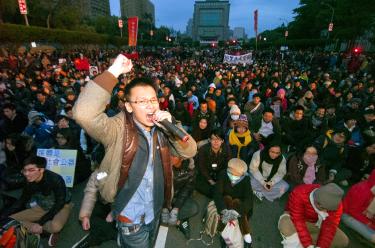During the year-end celebrations, Taiwanese youth and students showed they care about society and helping others by initiating rallies and lending movements their boundless energy and creativity, from picking up street trash and protesting against monopolization of the media to supporting laid-off workers.
This is a dramatic change from the recent past, when youth and students often gave the impression that they were self-indulgent, engaging in frivolous activities, thrill-seeking, all-night parties and shallow celebrity worship.



 The News
The News








